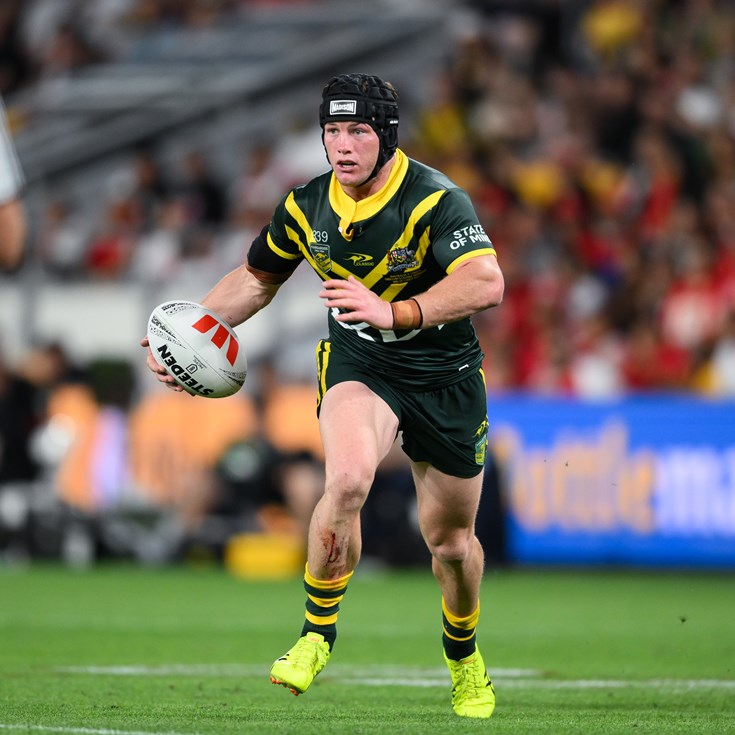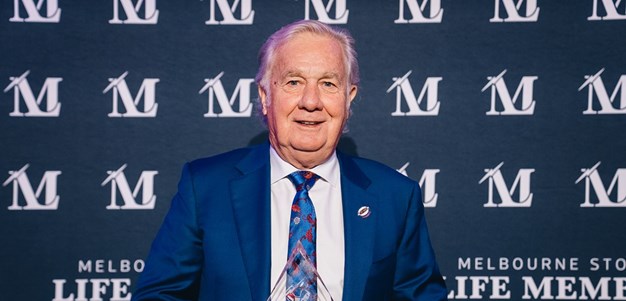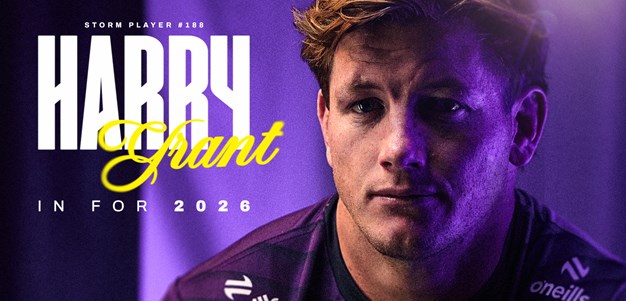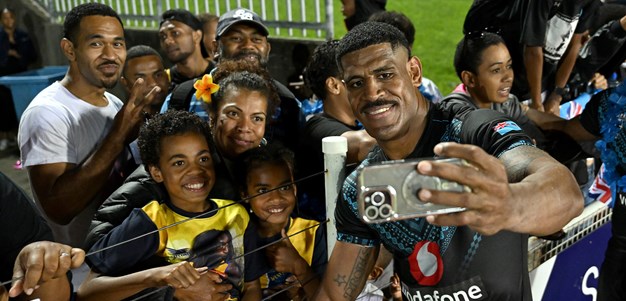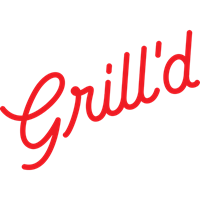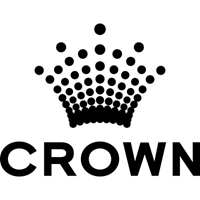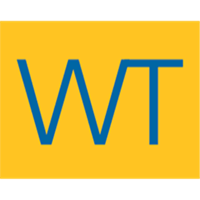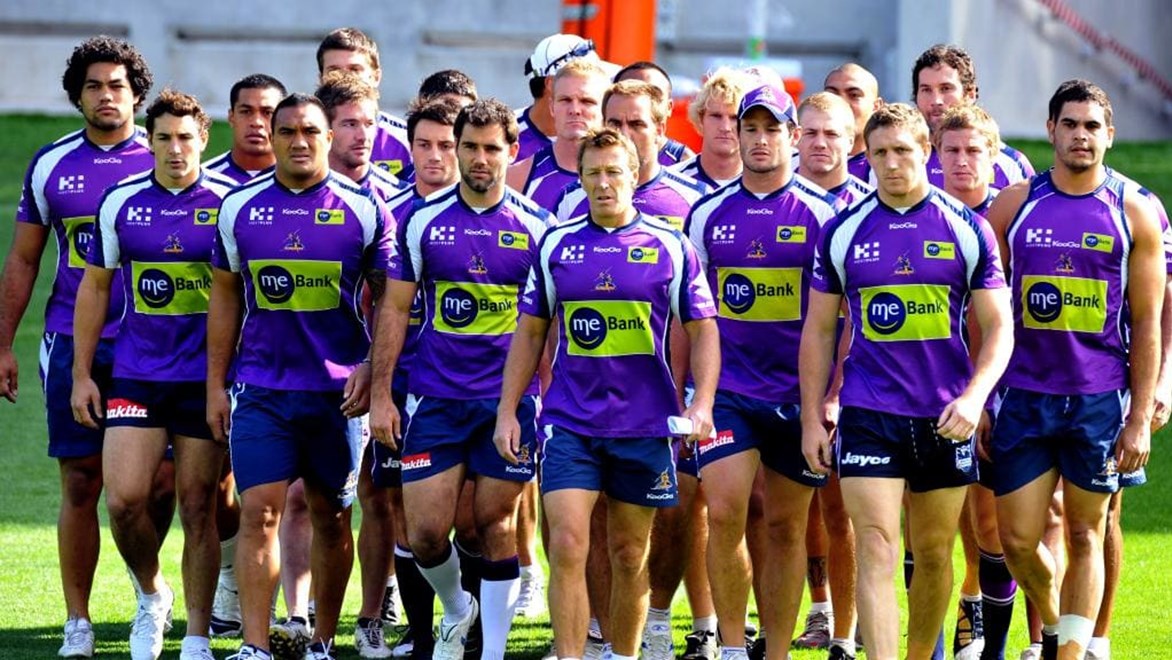

Ten years ago this week, a group of Melbourne Storm players led by their head coach, Craig Bellamy with his skipper Cameron Smith to his right, emerged from the AAMI Park players’ tunnel united in the face of the club’s darkest day.
Their new home ground, which opened weeks later, was still to be finished – but Storm weren’t.
Far from it.
What happened that day, and in the months that followed, set Storm on an amazing run of success that we hope has only been briefly halted as the club faces another crisis, the fallout from the worldwide coronavirus pandemic that has hit pause on our 2020 season.
It was on April 22, 2010 that the NRL, under then CEO David Gallop, stripped Storm of its 2007 and 2009 premierships, the consecutive minor premierships from 2006 to 2008 as well as a World Club Challenge title.
Adding to the pain caused by the discovery of substantial salary cap breaches, the club was fined $1.6 million, stripped of the eight competition points it had won in 2010 and told it couldn't play for any more points that season.
Rocked like no NRL club had ever been before, Storm decided to press on and attempt to make the huge setbacks from 2010 the start of something new -
to show they would not slide away into oblivion as some feared, including members of the staff and playing group,and others predicted.
As they always did on match eve, the players assembled for their final training run before their annual Anzac Day clash with the Warriors.
Before training, Bellamy, facing clearly the biggest challenge of his coaching career, led a march of unity across AAMI Park, flanked by his players, shoulder-to-shoulder.
Among them were some of the greats of the game – Smith, who is now the NRL’s all-time record holder, Billy Slater, Greg Inglis, Ryan Hoffman and a young Cooper Cronk.
Slater described it as an "iconic moment" for Storm.
"There was still a genuine fear the club could go under," Slater said in his autobiography.
"Craig wanted to show a united front.
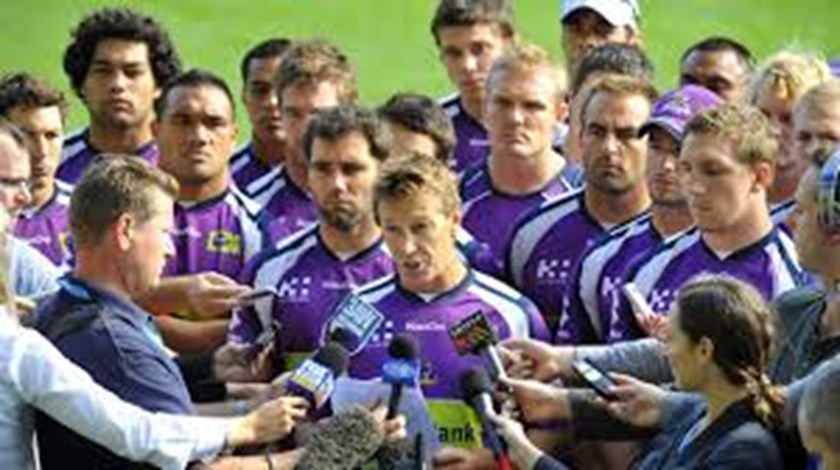
"He told us to let the world know, 'Whatever they throw at us, this group is sticking together'."
Bellamy then delivered a three-minute address to the waiting media pack, his first in public since the salary cap scandal broke.
"We stand here today united ... we ain't gonna surrender," Bellamy said.
"We have been gutted with what has transpired in recent days.
"Our greatest accomplishments and what we cherish most have been taken away.
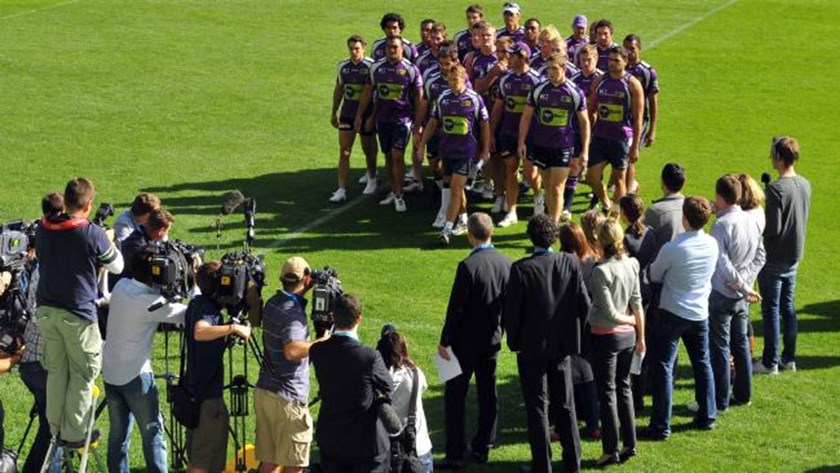
"We will not walk away from this challenge ... we will stand up for ourselves and fight our way back from here.
"That fight starts today. And tomorrow it starts on the field."
A galvanised Melbourne won that game against the Warriors 40-6, scoring seven tries to one.
The intent was clear from the moment Ryan Hoffman smashed Warriors fullback Wade McKinnon, as he collected a Cooper Cronk bomb, three minutes into the match.
The members and fans stood by their club – a crowd of 23,906 was at Etihad Stadium, one making up a large sign with the words “We will weather the NRL Storm”.
The new Storm CEO Ron Gauci told Australian Associated Press that when he saw the unity march he knew Storm would again be a success.
"When I saw that image of the players in their jerseys behind Craig - that loyalty and commitment - that meant so much to me," Gauci said.
"That's one of the strongest images I've seen in all the years I've been following sport.”
Coach Bellamy said taking the “no points” season seriously was crucial, even if the lure of finals football was not there.
"I knew that if we let our standards slip too far that year it would be too hard to come back in the years after," Bellamy said at the time.
Slip up they didn’t. Storm won a total of 14 games that year, including nine from 12 at home.
Storm have played in every finals series since, reached three further grand finals and claimed the 2012 and 2017 titles.
The club now has the fourth-most members in the NRL and is also in the top four for game attendance.
Melbourne started 2020 with two wins from two - both away from home against fierce rivals Manly and Cronulla - before the halt came.
Slater this week spoke of the comparisons between what Storm faced in 2010 to those brought on by the coronavirus issue 10 years later.
He said on Wide World of Sports Radio that the salary cap saga ultimately resulted in Storm's culture simply growing stronger.
"Looking back, it's times that you're down and out and you have to pick yourself up off the canvas, you understand what your club is made of and what culture is in your club and the people and the substance to those people," he said.
"To look back and to see how much uncertainty and how much hardship that club went through, and the people involved in it, and to go on and lose so many players at the end of 2010 and win the minor premiership in 2011 and the premiership in 2012, I think it's actually enhanced the club in terms of the culture and how it galvanised it.
“The game (now) is going through something like that together (during the coronavirus pandemic).
"This has the potential to galvanise the game together and galvanise the people within the game."
While Slater remains involved with Storm in a coaching consultant role, Smith is still playing and is still the team’s most influential player.
He was asked about the issues of 2010 prior to the 2019 season.
"To be honest, I think everyone involved in the club in that period has moved on in a lot of ways,” Smith said.
“We are always going to hold a lot of disappointment from what happened in that season, but I think you have seen from what we have been able to achieve, that shows that we have put it behind us in a lot of ways."
Storm is working hard, remaining united as always, with Bellamy and Smith still in charge, as the restart to the 2020 looms at the end of next month.
Written with the assistance of Australian Associated Press and Rugby League Project
